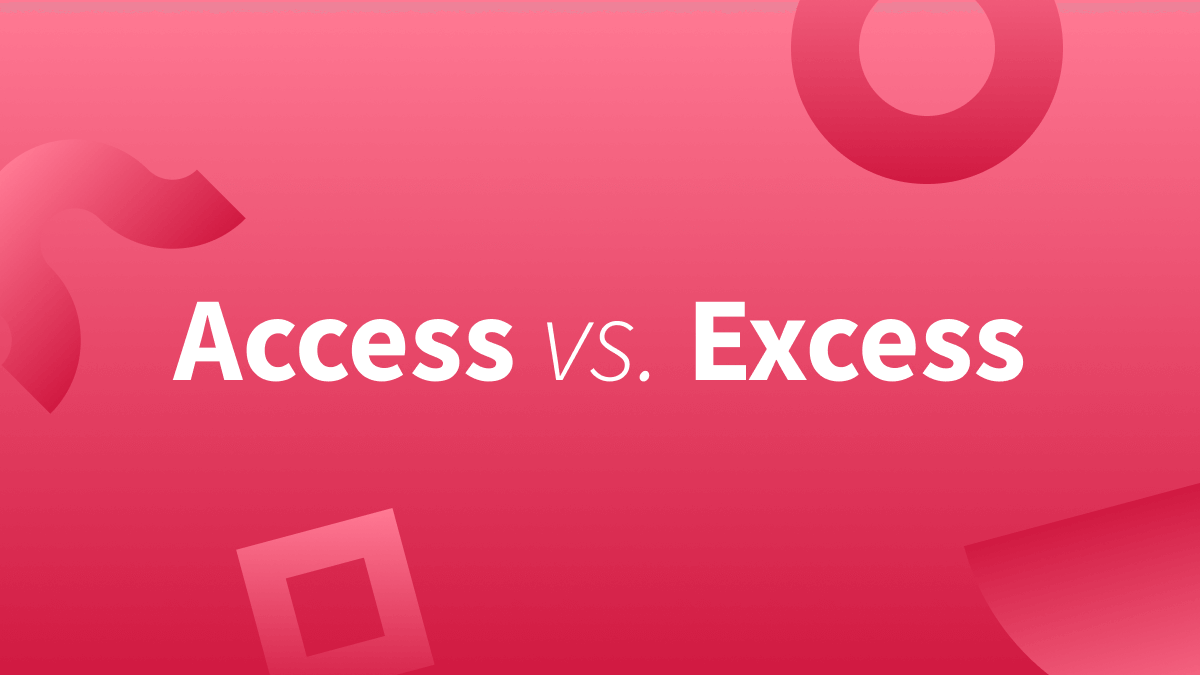What’s the Difference Between “Access” and “Excess”?
- Access can function as a noun that is defined as a “way or means of approaching or passing through a place.” As a verb, it means “to enter.”
- Excess can be used as an adjective or noun that refers to “more than the usual or necessary amount.”
- ○ We gave him access to the library.
- ○ He can access the backyard through the unlocked door.
- ○ Excess water bottles are stored for next season.
- ○ There is an excess of canned foods which we will donate.
“Access” vs. “Excess”
Only two letters differentiate the words access and excess. It doesn’t help that their pronunciations are somewhat similar, too. If you struggle with using access and excess correctly, we can help.
“Access”–Definition and Examples
Access can play the role of either a noun or a verb. As a noun, access references “the way or means in which someone can be seen or spoken to” or “how something can be reached, entered, or used.”
There’s no access to the dining hall from here.
Do you have access to a counselor on a daily basis?
I have easy access to the school’s system.
The definition above is the most common use of access as a noun, but it’s worth mentioning that it also has a few other (less common) meanings as a noun. It can mean “a sudden burst of emotion.”
In an access of rage, he punched a hole through the wall.
It can also have a similar definition to “onset” when referring to an illness or symptom.
She experienced an access of intense headaches and was rushed to the hospital.
And lastly, it can mean “an increase by addition.”
After winning the lottery, he had an access of wealth.
As a verb, access refers to the act of “entering, reaching, gaining contact with, or going through.”
You can access the channel if you know the password.
Raymond accessed the mail room and found his lost packages.
She will access the safe by pretending to be a locksmith.
Bonus Tip
If something is accessible, it means it’s easy to enter, reach, or speak with. You can also keep in mind that if you can access it, you can approach it (and they both start with an “a”).
“Excess”–Definition and Examples
Excess can also function as a noun and refers to “the amount that surpasses what is needed or usual.”
Sometimes it seems like my twins have an excess of energy.
The accounting department confirmed there was an excess in the yearly budget.
The technician said there was an excess of detergent in the washer, which is why it leaked.
Excess can also be used as an adjective and has a similar definition: “more than or above necessary, usual, specified, or proper amount.”
There’s excess food, so you’re more than welcome to take some home.
Excess luggage must get checked in at the kiosk.
Excess profits benefit everyone in the company.
Bonus Tip
Think of excess as meaning extra (they both start with an “ex”).
Although not as common, excess can also be used as a verb that means “dismiss, furlough, or eliminate the position of an employee.”
The company excessed several employees during the financial crisis of 2008.
Access Your Untapped Writing Skills
When it comes to access vs. excess, here’s what you need to remember:
- Access is most commonly used as a noun or verb and refers to the way to enter or approach something, or the act of. (If something is accessible, that means it’s easy to access.)
- Excess is most often used as a noun or adjective and indicates that there’s an extra amount of something.
If these tips don’t help you, and you find yourself having an excess of mistakes in your writing, use LanguageTool as your spelling and grammar checker. This multilingual editor can check for various types of mistakes, ensure proper word usage, and can even help rephrase your sentences. Try it today.

